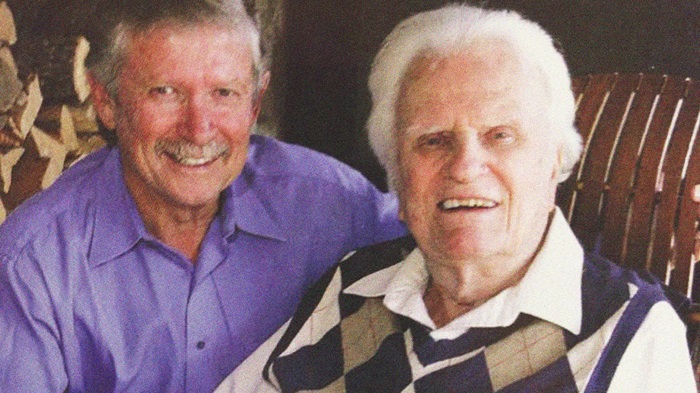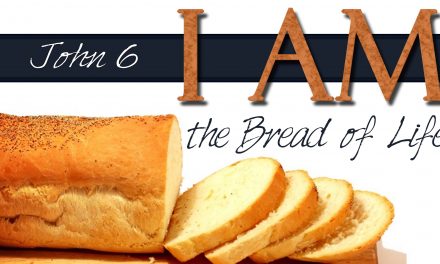Under a two-fold assault – one within and one without, the increasing and prevailing crisis and pressure upon pastors are undeniable. Pastoring is becoming challenging in such a time, when even believers are succumbing ‘to the snares of secularism. Pastors deal daily with diluted dedication, family disintegration, superficial commitments, and an accepted churchly consumerism no longer interested in sacrifice, suffering, or servanthood … Outside the church, pastors face a new dark age where the masses have no Christian memory, success is king, and faith issues are far down the average person’s priority…’ In our post-truth culture under the sense of independence and self reliance, Billy Graham did not rest on his own spiritual track record or position in the ministry. He was committed to excellent Spirit-filled ministry with someone to say no to him when necessary. Graham was well aware that it is ‘easy for a pastor to be fooled by his own propaganda because he is supposed to be right’ or by believing his own press. Graham had accountability pastor, a shepherd for a renewing role rather than a reversed role. He put himself under a pastor’s oversight and fellowship, totally submitted to him. He belonged to a local community of faith under a local minister by name Don Wilton, a 64 year-old South Africa-born preacher leading a major Southern Baptist congregation in South Carolina since 1993. Using the text for his burial on March 2, Graham “… never boast except in the cross of our Lord Jesus Christ, through which the world has been crucified to me, and I to the world.” (Gal 6:14).
Graham did not graduate above the need for spiritual encouragement, oversight, and counsel. Pastor Wilton, Graham’s spiritual confidant, personal pastor, and preacher at his burial tomorrow, according to Kate Shellnutt of Christian Today, met weekly for the past 15 plus years. According to Wilton in his interview with Shellnutt, Graham “… would ask me to pray that God the Spirit would fill him to the extent that he would be totally hidden behind the cross and people would only see Jesus,” It was while Wilton was getting to his car to have the Wednesday weekly fellowship and lunch with Graham that he learnt that “The Lord Jesus Christ made a determination that he wanted to have lunch that day with his servant Billy Graham … I think Mr. Graham arrived in heaven and standing right there at the gates was none other than Mrs. Graham.’
Graham, at the end of his global gospel crusades and meetings ‘tuned into sermon recordings and eventually became a member of Wilton’s congregation, First Baptist Church of Spartanburg, in 2008.’ Wilton despite his age and context as Graham’s personal pastor and friend shows a humble, teachable and submissive nature of Graham. According to Wilton, “It was the strangest dichotomy. Every time I was ever with Billy Graham … It was like the roles were reversed. In my heart, I’m sitting at the feet of one of the greatest men I could ever be associated with. In his heart, I really believe Mr. Graham saw it in the opposite way. Only the Spirit of God could do that. It’s one thing to preach the Word of God in power, but it’s another thing to actually be that, to live that. Mr. Graham didn’t just say what he said, he lived what he said … We would love watching golf together and talking about baseball, different activities, his immense love for the people of the United States of America, and his passion for the soul of American people. And needless to say, how many months and years we just discussed the Word of God.”
What was reversed roles to Wilton and causing a feeling of intimidation among many ministers today was Graham’s demeanour, his manner, his attitude, his touch, and his incredible spiritual humility. Wilton rightly put it, “It’s one thing to preach the Word of God in power, but it’s another thing to actually be that, to live that. Mr. Graham didn’t just say what he said, he lived what he said.” Graham did not take his spiritual health for granted despite his international reputation and age. He took his spiritual health with priority in obedience to apostle Paul’s advise to Timothy, “Keep a close watch on yourself and on the teaching. Persist in this, for by so doing you will save both yourself and your hearers” (1Tim 4:16). Graham was aware about this warning and command for leaders. Today many pastors and leaders are led away from the truth and from living a life in line with the gospel, hence the church, family and nations are in danger and risk.
The relationship between Wilton and Graham was about equippers needing equipping (Eph 4:12). Great ministers may make great mistakes and errors like Peter, one of the greatest in the company of apostles. For Graham, rank and dignity does not confer infallibility and to keep the truth of Christ was more important to him than to keep the people. The example and lesson from Graham like Apostle Paul is one that does not stand alone or travel through the ministry alone. Graham’s relationship with Wilton tells us that we are all spiritually and naturally need to lean on others for oversight. Graham did not entered the snare of making idol of himself. Indeed, the best of ministers are ‘but men – dust, ashes and clay…’ In a time when the truth have been driven ‘into the wilderness and decreed that to be true which are false,’ Graham invites us to accountability and submission. Graham was indeed a true Ambassador of Christ and worthy of honour and emulation, but he did ‘not make pope of’ himself nor allowed himself to be spoilt by flattery. Despite his public status, Graham put himself under a quiet oversight and accountability. The meekness of Graham in taking counsel and possibly reproof is a model as the renewing roles rather than reversed role of Wilton in oversight. In his strive to be holy, Graham experienced a happy life, marriage, and ministry because he was humble to ‘call the person who faithfully rebukes him a beloved brother (2 Pet 3:15). Using the words of Zacharias Tanee Fomum in his book, The Ministers and His Ministry of the New Covenant, Graham’s ministry was victorious, honest, suffering, soul focused, and blameless.
Ministry can become so familiar to the extent that we are unable to see our limitations and weaknesses. Hence, many pastors are going through imbalance and burn out today ‘when they have no or little wise counsel to turn upon.’ Graham had Wilton, Esther had Mordecai, and Moses had Jethro. Are you just doing the ministry On Your Own (OYO)? Graham’s legacy summons you and l to seek and identify a mentor, someone with a godly testimony. Fellow pastors, we are expendable, and it could be said that, we are back in the days of the Judges, ‘everyone did what was right in their own eyes’ (Judges 21:25), avoid burn out. Ministry-shaped by world’s expectations usually ends up as jack of all and puts the pastor’s soul, spirit and body at risk.











Recent Comments